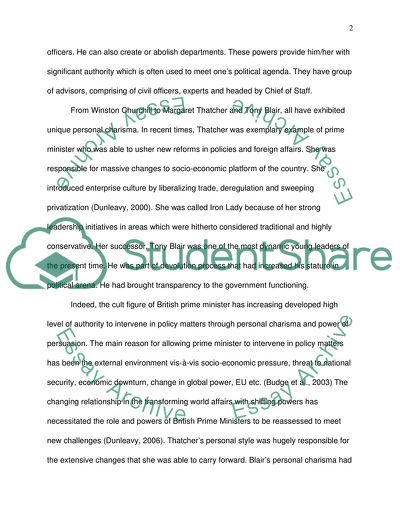Cite this document
(Critically assess the Prime Ministers powers; Review the role of the Assignment, n.d.)
Critically assess the Prime Ministers powers; Review the role of the Assignment. https://studentshare.org/politics/1797808-critically-assess-the-prime-ministers-powers-review-the-role-of-the-media-in-british-politics-to-what-extent-do-interest-groups-enhance-detract-from-democratic-life
Critically assess the Prime Ministers powers; Review the role of the Assignment. https://studentshare.org/politics/1797808-critically-assess-the-prime-ministers-powers-review-the-role-of-the-media-in-british-politics-to-what-extent-do-interest-groups-enhance-detract-from-democratic-life
(Critically Assess the Prime Ministers Powers; Review the Role of the Assignment)
Critically Assess the Prime Ministers Powers; Review the Role of the Assignment. https://studentshare.org/politics/1797808-critically-assess-the-prime-ministers-powers-review-the-role-of-the-media-in-british-politics-to-what-extent-do-interest-groups-enhance-detract-from-democratic-life.
Critically Assess the Prime Ministers Powers; Review the Role of the Assignment. https://studentshare.org/politics/1797808-critically-assess-the-prime-ministers-powers-review-the-role-of-the-media-in-british-politics-to-what-extent-do-interest-groups-enhance-detract-from-democratic-life.
“Critically Assess the Prime Ministers Powers; Review the Role of the Assignment”. https://studentshare.org/politics/1797808-critically-assess-the-prime-ministers-powers-review-the-role-of-the-media-in-british-politics-to-what-extent-do-interest-groups-enhance-detract-from-democratic-life.


